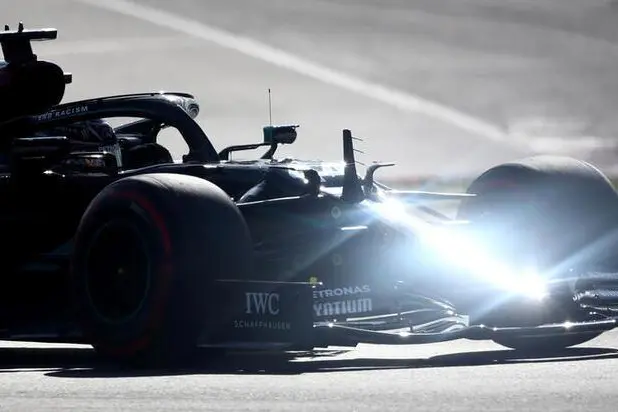PHOTO
Respondents to a survey expect the sports industry in the Middle East to grow by 8.7% over the next three to five years, reflecting the fastest growth compared to 50 countries across the world, a report said.
In stark contrast to the global sports market, respondents expect the Middle East to grow by 8.7% over the next three to five years, added the Middle Easts Sports Survey released by professional services firm PwC.
Strong government support and growing commercial maturity have undoubtedly contributed to raising the Middle Easts profile within sports in recent years. Examples of world-class sporting events include the annual Formula One Grands Prix in Abu Dhabi, Bahrain, and now in Jeddah, heavyweight boxing champion Anthony Joshuas bout in Saudi Arabia, as well as Qatar set to host the 2022 FIFA World Cup.
This is mainly because Middle East governments have been active in efforts to diversify their economies with ambitious plans for the sports industry away from natural resources and to create social cohesion, , noting that GCC member states including Saudi Arabia and the UAE have spent more than $65 billion on sports development.
In terms of the rebuilding process, some 63% of Middle East respondents expect the sports market overall to fully recover by 2022, which is far more optimistic than the global respondents of 42%. Their positive outlook is bolstered by the expectation that public expenditure in the sector will continue.
However, the survey suggests the sports sector in the Middle East should prioritise its concrete initiatives to accelerate change and that the future of the sector has three key enablers in the years ahead. These are digital transformation and the creation of digital assets, the growth of esports and ability of sports federations to capitalise on their popularity, and the transformational power of womens sports within society.
Digital transformation is building closer relationships with fans
The global survey results show that sports leaders in the Middle East fully recognise the digital fan experience as a top priority. Yet, few organisations have managed to deliver it in a way that allows it to acquire and retain fans sustainably.
Although the sports industry in the Middle East is at an earlier phase in comparison to its global counterparts when it comes to this subject, there is a strong awareness of the opportunities: digital assets owned by sports organisations are highly rated by our survey respondents as a way to unlock growth in both engagement and revenue.
E-sports are accelerating their rise as fastest-growing category
Esports is a natural fit for the Middle East, where most of the population is young and internet-savvy, and the climate, especially in GCC countries, is often too hot for outdoor sports. Esports are video games played competitively, either one-on-one or between teams, and include both electronic versions of real-life sports such as the popular FIFA game, or action/ shooter games such as League of Legends and Call of Duty.
Saudi Arabia ranks among the top 20 countries for games revenue at $716 million, with the UAE generating $313 million and Egypt $287 million. It is no surprise, therefore, that our survey respondents ranked esports first equal with football in potential for revenue growth.
On a more positive note, as the pandemic forced people to spend their time indoors; sectors like simulated sports and esports have seen golden opportunities. Thus, esports emerged as the biggest winner of the lockdown period. Many turned to gaming, including sports organisations investing in esports activities to keep audiences engaged. Unsurprisingly, the consumption of simulated sports esports literally exploded at the heart of the crisis, tripling the number of hours watched. Action, fantasy and shooter genres also experienced significant growth, with an increase of about 50%.
Interestingly, most survey respondents believe that in the medium to long-term, simulated sports esports will appeal to a mainstream audience as gaming grows in popularity, products improve, media coverage increases and technology advances.
Rami Nazer, Global Advisory Government and Public Sector Leader at PwC comments: At a time of unprecedented turbulence for the industry, our Sports Survey examines in depth both the short-term and long-term impacts of Covid-19. However, our survey highlights the opportunities as the sports industry is expected to grow faster in our region than anywhere else in the world over the next three to five years.
Nazer added: The lockdown has maximised the value of sports through digital transformation to engage audiences and keep fans connected. Hence, this opened up opportunities to attract more audiences, business partners and revenue streams. In this increasingly digital landscape, sports leaders will need to prioritise their concrete initiatives to invest and innovate; to make the most of the changes and anticipated growth during this exciting period of transformation. TradeArabia News Service
Copyright 2021 Al Hilal Publishing and Marketing Group Provided by SyndiGate Media Inc. (Syndigate.info).





















